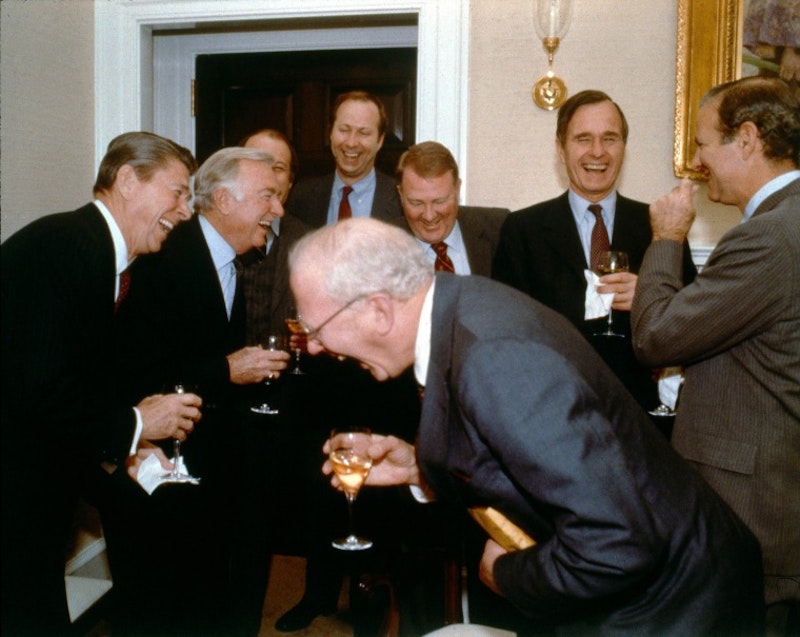David Brooks isn’t often entertaining—moral scolds never are—but his New York Times column from early-August has rattled around my head. I don’t think Brooks, in his 279th meditation on meritocracy, was purposely trying to elicit guffaws from readers, as subsequent essays proved, but his mock I’m-wearing-a-hairshirt-on-behalf-of-my-elite-social-class batch of words sure beat the usual quotes from a University of Chicago professor, Plato and Henry James on the funny meter.
Brooks never wavers in his certitude, despite the headline of his column, “What if We’re the Bad Guys Here?,” but rather wants to provoke cocktails/coffee chatter among his well-heeled peers. He tries to explain why some Americans are sticking with Donald Trump, despite the former president’s indictments and boorish behavior. (I don’t put myself in the self-serving, vying-for-attention NeverTrump crowd, but haven’t, and won’t vote for the man.)
According to Brooks, the Elite—he includes himself—ought to metaphorically go on trial just as Trump will many times in the next year. He begins by echoing the well-known lament of James Fallows—in a 1980 Atlantic article—about how educated, and often affluent, young men were able to avoid Vietnam while America’s forgotten classes went to Asia to die or get maimed. Brooks wasn’t yet of age to avoid the draft, but it’s part of the theme, that a caste system was fortified in the 1960s. (The draft had ended by the time I turned 18 in 1973. My four older brothers, fortunately, escaped military service; all of them opposed the war.)
Brooks writes: “The ideal that we’re all in this together was replaced with the reality that the educated class lives in a world up here and everybody else is forced into a world down there. Members of our class are always publicly speaking out for the marginalized, but somehow we always end up building systems that serve ourselves.” Aside from World War II, when men from all stations of life enlisted or were drafted, and made friendships with people they probably wouldn’t have encountered otherwise, when was the notion of “We’re all in this together” a rallying cry? Definitely not in the entire 19th century—and not just in the South—and not, in fact, despite the bleats of some populist politicians, ever in the country’s history.
Rabbi Brooks inadvertently lets on that, while fretting about inequality, he doesn’t believe his own baloney. He makes the correct statement that the news media is, by and large, staffed by people like him, at least the “quality” newspapers, “the beloved New York Times and Wall Street Journal,” not the “lunch-bucket” local papers where ambitious young people, likely in vain, work like dogs for peanuts, hoping for a shot at a Brooks-like throne, but the following is an example of his Trump-like condescension, a characteristic that can’t be altered in late-middle age. “When I began my journalism career in Chicago in the 1980s [a date that will live not in infamy, but misfortune], there were still some crusty working-class guys around the newsroom.” I’d guess that Brooks didn’t let any of that “crust” rub off on his “starter” Brooks Brothers suit, but maybe at a Christmas party, full of peace and good will toward “crusty working-class guys” he had half a can of Old Style beer and talked about the Bears/Bulls for about two minutes.
Anyway, just a few weeks later, Brooks returns to lecture mode, this time to the Youth of America, on the importance of marriage. He writes: “My strong advice is to obsess less about your career and to think a lot more about marriage. Please respect the truism that if you have a great career and a crappy marriage you will be unhappy, but If you have a great marriage and a crappy career you will be happy.” That’s a generalization: it’s wonderful that some couples are so compatible and love each other, that not much else matters. But Brooks ignores that money, money, money, or lack thereof, is often the catalyst for marital discord, and a “crappy career” seeds that. (In fairness, Brooks does say, from his rarefied air that “We could do a lot to raise the marriage rate by increasing wages; financial precarity inhibits marriage.” Maybe Brooks is part of “we” who could raise wages, by donating part of his wealth to unmarried couples.)
As a bonus, Brooks suggests that the young have romantic relationships as “practice” for marriage (is “practice” a euphemism for getting as much pussy or dick that you can?), and advises people read George Eliot and Jane Austen. Is it “problematic” or Weinstein/Epstein-like that Brooks cites Eliot and Austen as primers for marriage and no men? Let’s hear from the “crusty working-class guys” on that question. Perhaps those “folks” are the ones serving Brooks and his fellow elites at New York and Washington cafes.
—Follow Russ Smith on Twitter: @MUGGER2023

